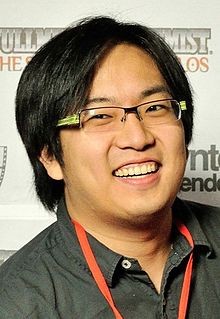A Quote by Ashly Burch
There's the idea that gaming is a closed door and that men are holding access to who gets in or out, and you have to prove - if you're female - that you're a real gamer. I think the younger generation, they don't care.
Related Quotes
As others have recently suggested, the term 'gamer' is no longer useful as an identity because games are for everyone. These days, even my mom spends an inordinate amount of time gaming on her iPad. So I'll take a cue from my younger self and say I don't care about being a 'gamer,' but I sure do love video games.
I found that the best way to go about [ Black men ] is to produce better men. And I think if we get them at a younger age, and start teaching these young brothers the principles of manhood: That real men go to work everyday; Real men honor God; Real men respect and adore women - that's what real men do.
Younger feminists actually care about stuff that came before them, the same way that I totally cared about and loved and felt so lucky to have access to the feminism that came before me. To have younger people take what me and my friends have done, and to say 'We have access to that, but we're going to put that through our own Internet generation filter and we're going to make it into something that speaks to us and is a lot smarter.'
It was interesting that feminists of my generation told me: You are discouraging younger women; you are confirming stereotypes of women; you are opening a door, initiating a debate, that will harm our movement. And my point was: We are already having this debate, especially in the younger generation.




































